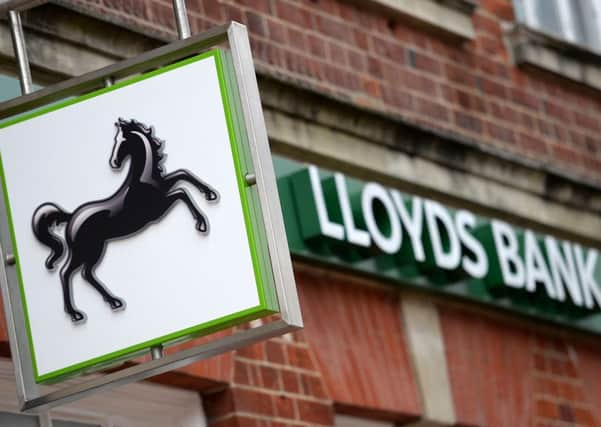Martin Flanagan: Lloyds emerges from shadow of crash
This article contains affiliate links. We may earn a small commission on items purchased through this article, but that does not affect our editorial judgement.


The bank has more than doubled earnings over the previous year, largely due to a cut in payment protection insurance (PPI), the latter hanging like a millstone round its neck for far too long.
Dividends, restored in 2014 after a hiatus since the 2008 financial crash and taxpayer bailout, continue to grow incrementally and Lloyds added an extra 0.5p special dividend for investors yesterday.
Advertisement
Hide AdAdvertisement
Hide AdThe likelihood is that the bank will be totally back in the private sector by this summer, with the taxpayer now owning under 5 per cent of the bank compared to more than 40 per cent in the dark days, and £18.5bn of the £20bn state bailout now paid back into the Treasury’s coffers.
Lloyds’ business model, simpler than the likes of HSBC and Barclays, is a virtual complete play on the UK economy, and that is holding up far better than expected since last June’s unexpected Brexit vote.
Lloyds has taken the scenic route to complete recovery; but in many ways in recent years so has the whole industry. And it would be churlish not to acknowledge that, under Antonio Horta-Osorio’s stewardship since 2011, it has now come out the other side.
The one fly in the ointment might be that skew towards the UK economy if things do take a downturn as Brexit talks progress.
Lloyds is a big player in the UK current accounts and mortgages arena, and is also buying the UK credit card business MBNA.
If, as inflation is expected to rise inexorably this year, households find their pockets squeezed, Lloyds may be affected more than some of its rivals.
That is something for the future, however. The snapshot we have currently of the bank is one of renewed health after a long period first in intensive care and then in gradual recovery. A corner has been turned.
